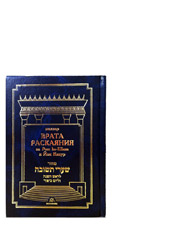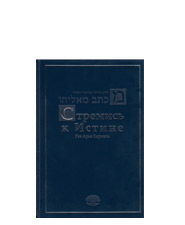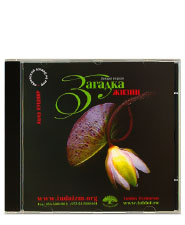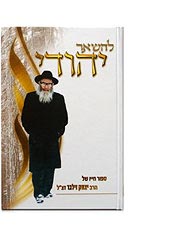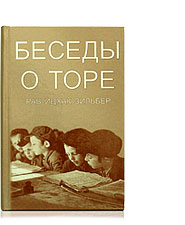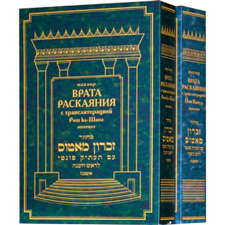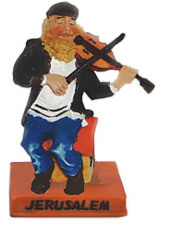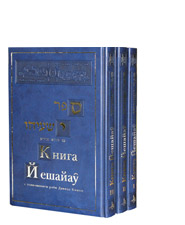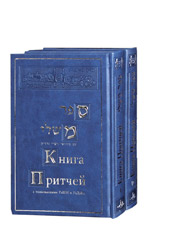
The Memoirs of Rav Yitzchok Zilber zt"l "To Remain A Jew" - Deportation to Kazan
Using the excuse of Jewish disloyalty, the czar’s government cleared the border area of Jews. Thousands of Jewish families from Lithuania and Latvia were forced to move into central Russia.
RAV YOSEF ROZIN FROM ROGATCHOV
In those times there lived another distinguished rabbi besides Rav Meir Simcha, namely Rav Yosef Rozin, the Rogatchover Gaon,[1] as he was called, comparing him to the Vilna Gaon.[2] Maybe it was an exaggeration, but he really possessed a huge body of knowledge and could recite from memory any part of the Talmud.
Two such sages! In one city! And at the same time! Once I said what I knew about Rav Meir Simcha, I could not fail to mention Rav Yosef Rozin here.
Although two very different people, Rav Meir Simcha and the Rogatchover Gaon were very close friends. The Rogatchover Gaon outlived Rav Meir Simcha by ten years and died in 1936.
They say that once a famous Jewish poet, Chaim Nachman Bialik, visited Rav Yosef. Later they asked him what his impressions were. He replied with excitement, “Great intellectuals get together, study the life of the Jews of two or three thousand years ago, construct theories of how people cultivated the land, how they dressed, and so on. But the rabbi has an answer to any question, and every answer he supports from a citation in the Talmud. From the small part of his head you can produce tens of Einsteins!”
When they asked the Rogatchover Gaon about Bialik, he replied, “If this man learned, he would know a little something…”
DEPORTATION TO
When World War I began, Jews in the western districts of the Russian Empire faced new trouble. Using the excuse of Jewish disloyalty, the czar’s government cleared the border area of Jews. Thousands of Jewish families from
My mother used to tell me how horrible it was. Everybody was forced into the train cars — the sick and the healthy, the old and the young — and were sent to the middle of nowhere. My mother’s parents went with her.
My father was shocked by his father-in-law, Rav Shapiro’s patience under these circumstances. Rav Shapiro’s grandson,[3] Mordechai Pinchas, had been elsewhere learning in yeshiva. We found out that he also was sent away, but on a different train. He found the train where his grandfather was, and came to him very shaken. All around was noise and chaos — the cars were stuffed to the limit with people, everybody was nervous and confused, nobody knew where he was being taken. The boy was in tears, and his grandfather asked him as if nothing happened, “Nu, what did you learn this week?” For half an hour, until the train started moving, he sat with his grandson and talked serenely, as though it were Shabbos after the meal. I think they managed to leave together, although there were myriads of people.
At the same time, the parents of my future wife (I think they had not even met yet) were forced to leave their native city. From Brest-Litovsk (today
People were taken off the train as it traveled across the country. My mother and father were taken off in Kazan and my mother's parents, Rav Shapiro and his wife, in
My grandfather and grandmother managed to return to
At first my father hid the fact that he was a rabbi, but soon in synagogue somebody recognized him and shouted: "Rebbe, why are you standing by the door?"
My father wanted to serve as a rabbi without being paid and decided to earn money through trade. He gave all of his money to a few businessmen to invest. When their business started showing a profit, my father found out that his partners were trading on Shabbos. He refused to take "Shabbos money" and had to accept the post of official rabbi. I remember the seal he kept at home that said "The Rabbi of Kazan Gubernia (District).”
From morning until night my father was involved in community matters: from noon to 2:00 PM daily he supervised shechitah at the city slaughter house, then he would teach people in the synagogue, accept visitors at the synagogue and ultimately at home, answering their questions and giving counsel regarding their problems.
When in 1926 the Soviet regime wiped out everything connected to Jewish religious life and closed the synagogues, my father's activity became unofficial and underground. How did we manage to live after that? Don't ask.
[1] Genius.
[2] The great Rabbi Eliyahu from Vilna.
[3] From his daughter, Chana Ittel, who died very young.




